Latest Contributions
Read More Contributions
No. 806, L/NK Sadhon Gopal Mukherjee (1900-1918)
Category:
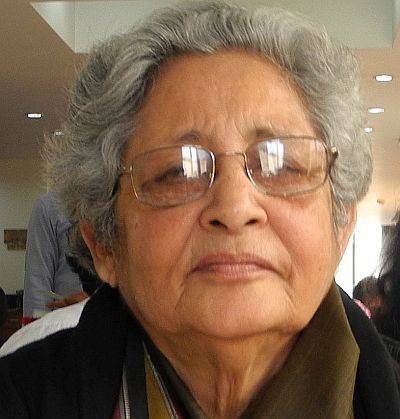
Suchandra Banerjee was born in 1939 to Tapogopal and Usha Mukherjee. After she got married to an Army officer in 1958, she made her husband's family and the Indian Armed Forces' family her own. She moved with her husband from city to city, ending in Lutyen's Delhi when her husband, late Lt. General Ashish Banerjee PVSM, served as the Director-General of the National Cadet Corps. Known as a person of great spirit and generosity, she has helped several people, outside her family, whose start in life was disadvantaged. She nurtures a large extended family and contributes to endeavours and institutions serving to uplift communities and the arts. She lives in Noida in the home she retired to with her late husband.
Editor's note: Leena Brown, Suchandra Banerjee's daughter, submitted this story.
Sadhon Gopal, the second son of Surobala and Rai Bahadur Pran Gopal Mukherjee (click here for a story about his life) was my father's younger brother. He lived with his grandmother and brothers in the family ancestral home in Krishnanagar for stability of schooling as their father had a transferable government job.
He was inspired to join the Army in World War I. Sadhon Gopal went to a recruiting camp to volunteer for the war without telling the family, as he did not want to be stopped in what he considered to be his path of duty. In those days since births were not routinely registered, he put down a fictitious number to meet the required minimum age.
He was rejected due to his poor physique.
He came back more determined than ever, and started concentrating on his diet and exercise. Since the family was vegetarian, he added more milk products to his diet by requesting these from his youngest aunt, who looked after the joint family's meals.
A year later, when he had gained weight, he was ready to try again. Meanwhile he had not breathed a word of his ambition at home or taken anyone into confidence. As one of his elder brothers was getting married in Kolkata, he took his grandmother's permission to attend the wedding. He dressed up nicely in a red-bordered dhoti, touched her feet, and left for Kolkata - never to return.
He wrote to his father after he was recruited as No. 806 Lance/Naik into the 49 Bengal Regiment. Their war cry was abhi le Baghdad (take Baghdad now).
Sadhon Gopal died in Mesopotamia during the war on 18 July 1918.
His last letter to his elder brother, my father, was a postcard requesting him to send his poite (sacred thread) and expressing happiness at the birth of a brother 18 years younger than him.
His last letter to his parents showed the distinctive relationship he had with each of them. To his mother, he wrote in an informal and casual way enquiring after near and dear family members. He was peeved that no one had informed him of his cousin Shyam's engagement. He promised to take good care of himself and write home more regularly, at least once a month!
To his father, he expressed his lofty ideals which propelled him to join the war. He believed that by joining the ranks he was fighting for justice and peace, and if he came out of this test of fire, he would have been of service to his motherland and the world at large.
His parents received several communications and honours from the War Office in Britain. Among them are:
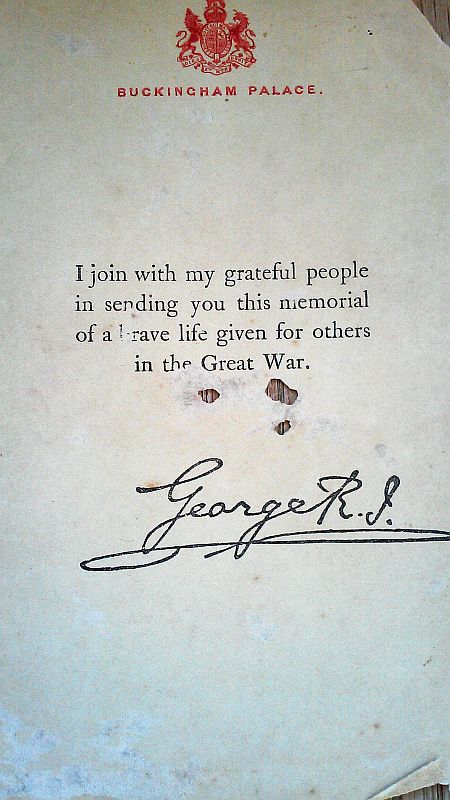
Condolence message from Emperor George V
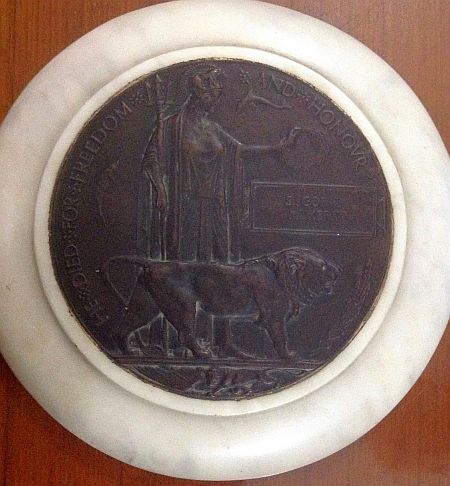
Plaque of Goddess Diana and Lion which accompanied the Emperor's condolence letter
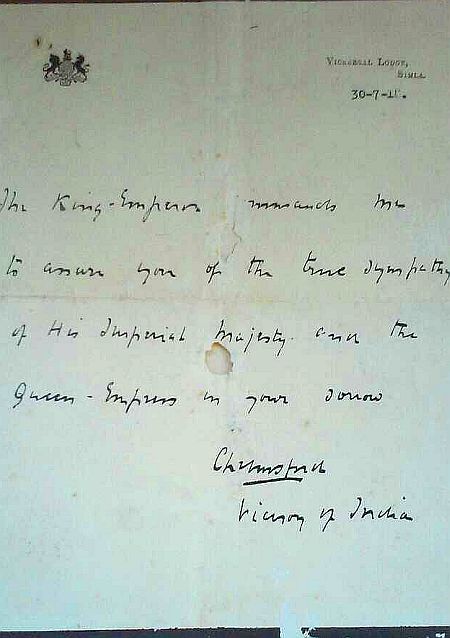
Condolence message from Lord Chelmsford, Viceroy of India
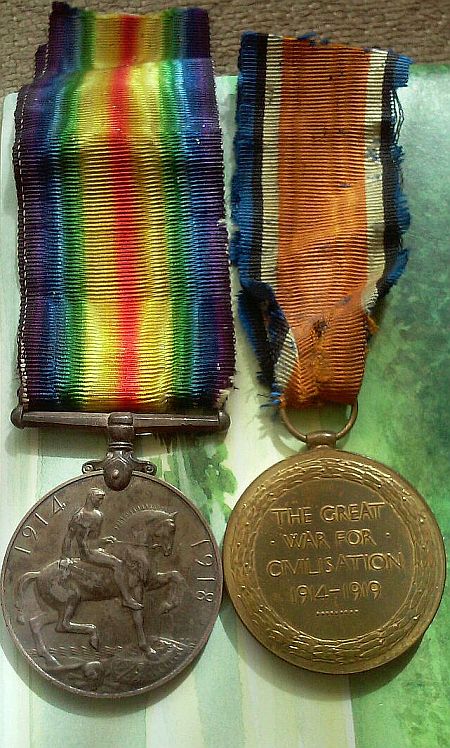
Service medal given to each British soldier in World War I
Epilogue
Our Sadhonkaka (paternal uncle Sadhon) was gone much before any of us came on the scene. Our curiosity was raised as we entered the front room of Ganga Ashram, his mother's home in Deoghar where there was an enlarged fading photo of a youngster in a striped shirt. Our father kept the photo of his grave in his room, an innocuous mound of dirt and a number in far away Mesopotamia.
His memory was kept alive by his mother (my grandmother), who called him by his nickname Bhonu. She kept recalling proudly his prowess in sports, his excellence in academics, his wonderful nature and ability to get along with people of all ages. She would often say that on the Krishnanagar Collegiate School's annual day, her family and friends would tease her in a friendly way by saying "Mejobou (second daughter-in-law), hire a porter when you visit the school because your boys will surely bring home all the sports and academics prizes that they were allowed to participate in."
She would also say that that the first and only time his father (my grandfather) broke down was when he found out that Sadhon had passed away.
Since he had died unmarried while serving in the Army, his parents were entitled to receive a pension. His mother continued to receive a pension of two figures (under Rs. 100) till she passed away in 1961. It was my husband, as Staff Captain A in Bengal Area at that time, who informed the pension office that the pensioner mother of L /Nk Sadhon Gopal Mukherjee was no more.
If my father happened to be in Kolkata on Memorial Day (11 November, also known as Remembrance day or Poppy day, a tradition inaugurated by Emperor George V), he would go to Hedo, where there is a wall with the names of the soldiers of 49 Bengali Regiment. His name is there. I had accompanied him on one such trip in the late 1940s. I have heard that his name is on India Gate, New Delhi also, though I am not sure.
Today, as I think of him, I realize what a strong sense of conviction he had. He stood steadfast with the decision he took, and plunged into the unknown. So, like a true soldier, his indomitable spirit lives on.
____________________________________________________
© Suchandra Banerjee 2016
Editor's note: I approve all comments written by people\; the comments must be related to the story. The purpose of the approval process is to prevent unwanted comments, inserted by software robots, which have nothing to do with the story.
Add new comment